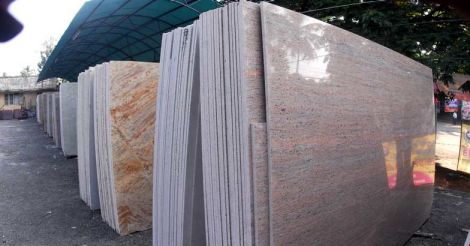Thiruvananthapuram: If you are building a house and planning to buy granite from Karnataka or marble from Rajasthan, then July is your lucky month. The Goods and Services Act, which comes into effect on Saturday, allows you to transport any commodity in any volume across inter-state borders if it is meant for personal use.
The GST provides for standard tax rates across the country but some states may have a natural advantage because they will be able to sell some products at cheaper rates. Rajasthan, for instance, will continue to be the favored destination to buy marble.
Consumers, however, can rest assured of a smooth passage across state boundaries. Gone are the days when they were stopped by sales tax officers at the check posts and asked to pay 14.5 percent tax and an equal amount as fines. The burden of proving that the load is meant for personal use rested on the consumer.
With the GST in effect, any purchase in any state will require the buyer’s address with pin code. All bills will have the GST number. All you have to do is to show the bill at the check post and the officials will be only happy to let you pass because the tax will eventually ends up with the home state of the buyer.
The ease of trade is expected to intensify competition among traders. The merchants may have to undercut competition by making attractive offers as the entire country becomes a single market.
Merchants do not stand to gain even if they smuggle in loads by misleading tax sleuths because they have to record the transaction before claiming input tax credit for any taxes paid outside the state.
Read more: Latest GST news | GST to be launched on June 30 midnight in Parliament

























 Representational image
Representational image